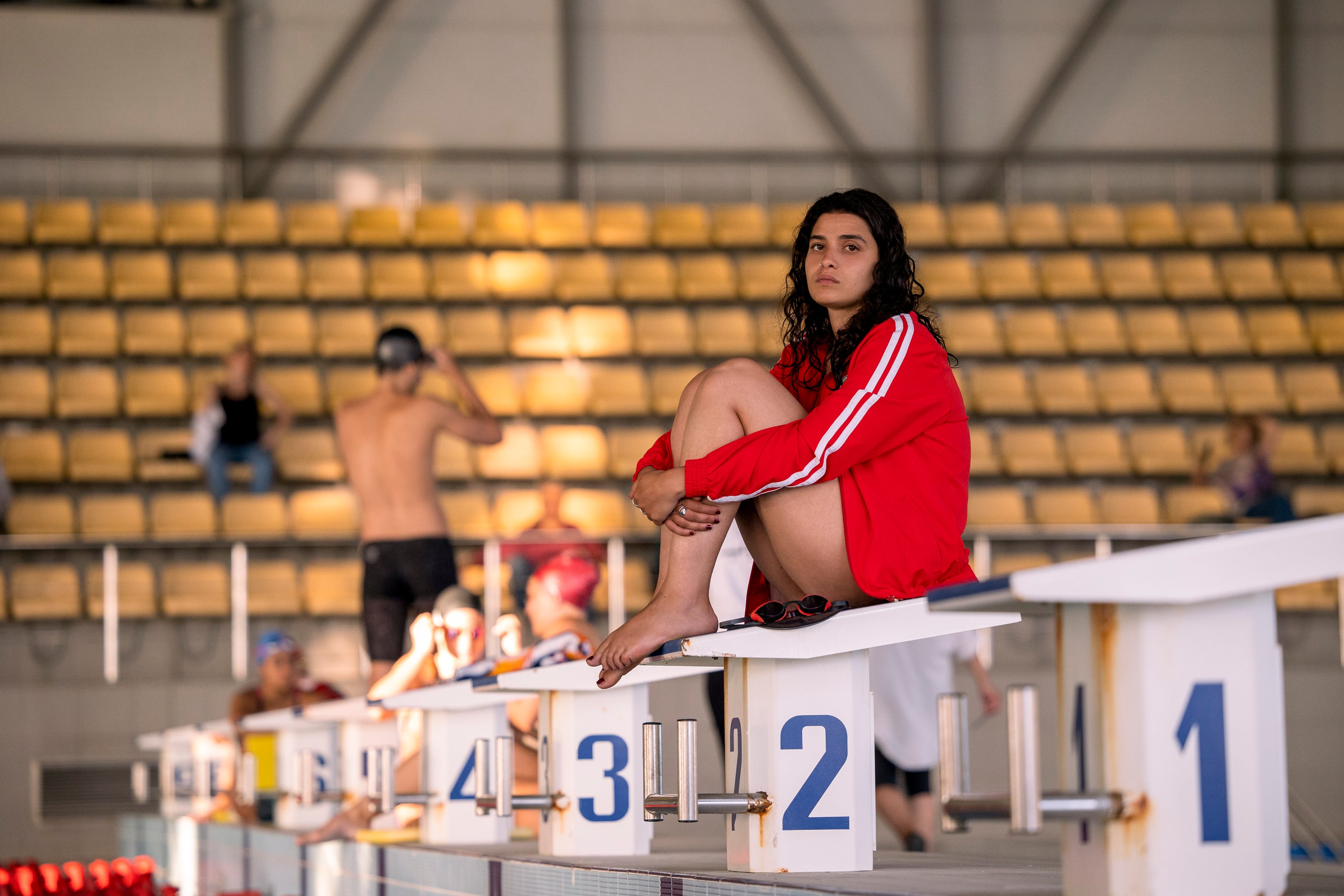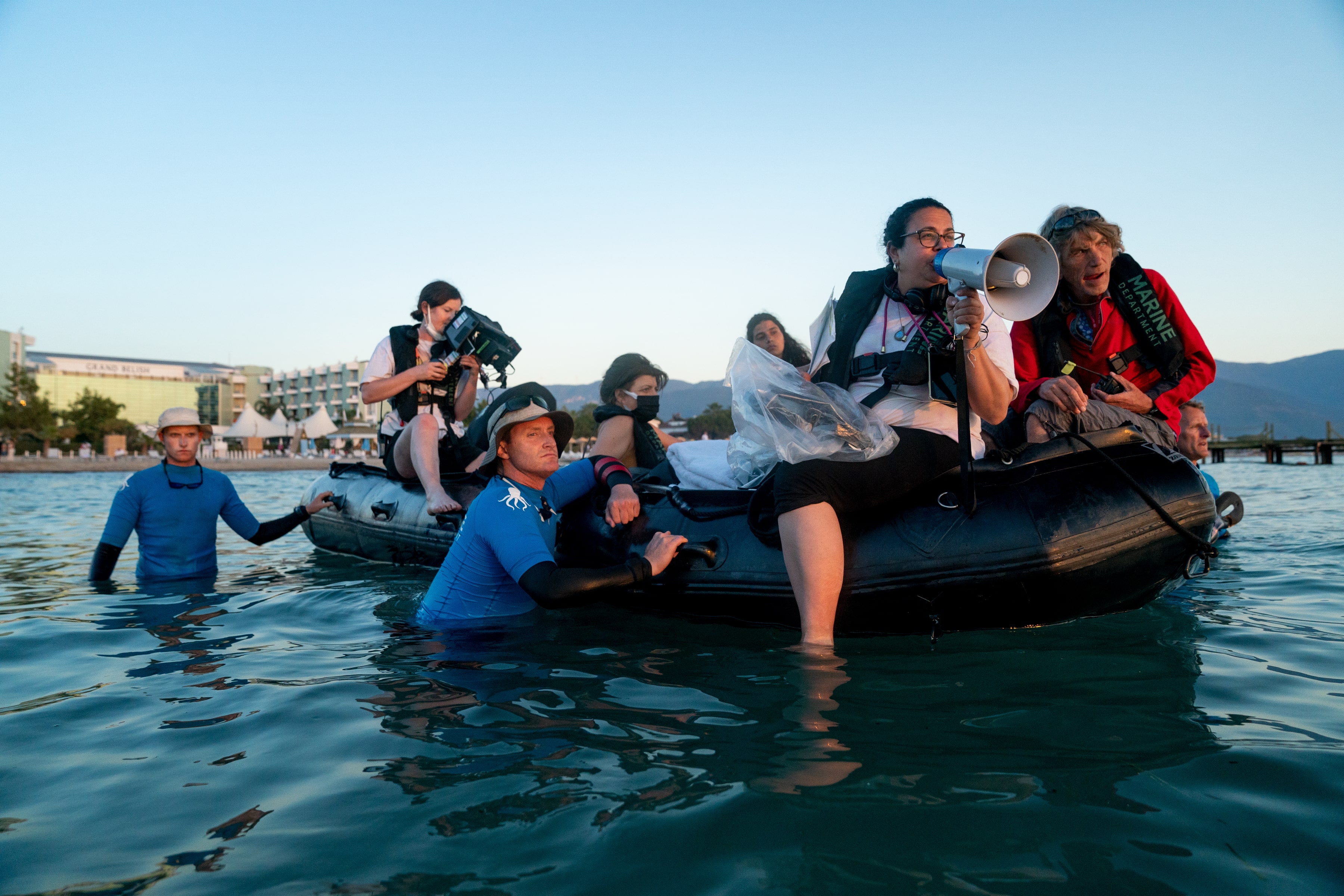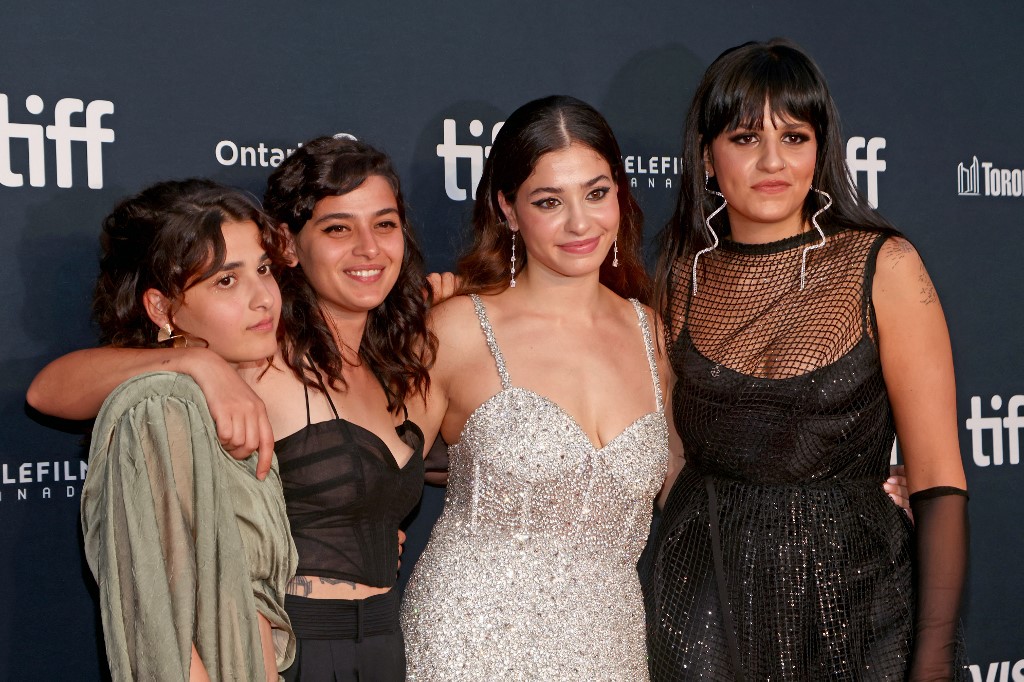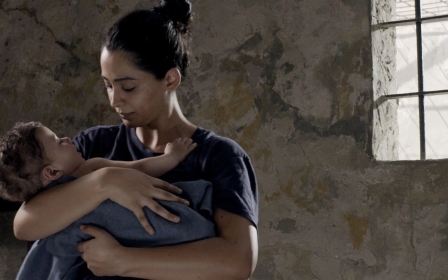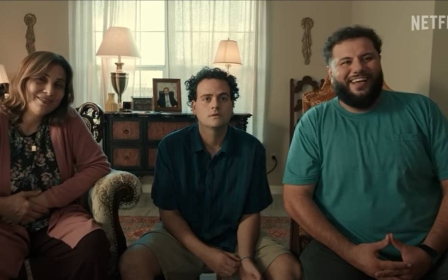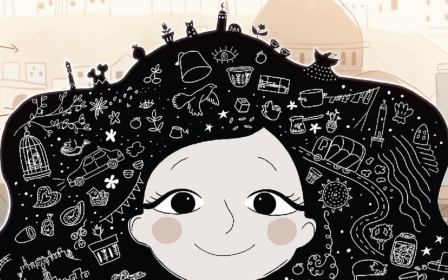The Swimmers: Yusra Mardini's journey from a refugee boat to the Olympics
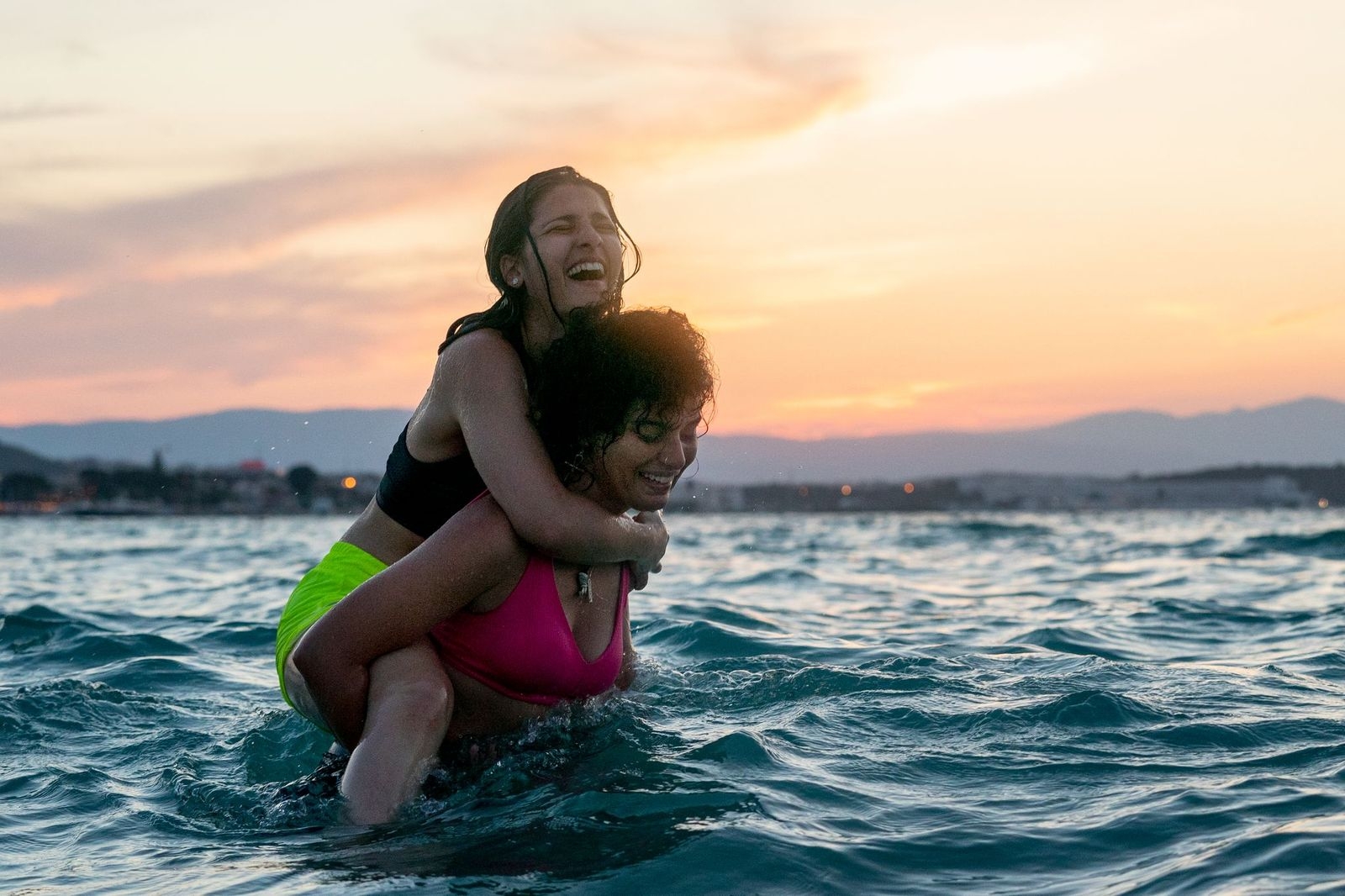
The Swimmers is the true story of Yusra and Sara Mardini, two sisters who escape the war in Syria and go on, in Yusra's case, to compete at the 2016 Summer Olympics in Rio de Janeiro.
Now streaming on Netflix, director Sally El Hosaini’s film follows their harrowing escape from Damascus to Europe in 2015, their experience of harassment and discrimination, and finally redemption at the world’s biggest sporting event.
At the start of the movie, the Mardini family’s attempts at preserving some semblance of normality in Damascus are constantly interrupted by the sound of explosions, whether at swimming practice or a younger sister’s birthday party. It becomes clear that Yusra and Sara's hopes of a happy life, let alone Yusra's dream of competing in the Olympics, are dependent on escaping Syria.
In 2015, against a backdrop of bombs falling outside their house and news of a friend’s death, the sisters convince their father to let them join the tens of thousands of Syrian refugees heading to Germany.
Along with a cousin, they take a flight to Turkey, with the aim of paying a smuggler to get them across the border and into Bulgaria. Of course, as the deaths of thousands of refugees attempting to cross into Europe attests, that was never going to be simple.
New MEE newsletter: Jerusalem Dispatch
Sign up to get the latest insights and analysis on Israel-Palestine, alongside Turkey Unpacked and other MEE newsletters
Yusra and Sara are played by Nathalie Issa and Manal Issa, sisters themselves, in a cast that includes Ahmed Malek, Kinda Alloush and Ali Suliman.
In terms of its narrative, the film does not stray far from the sisters’ real experiences.
The engine on their overcrowded dinghy fails in rough waters en route from Turkey to Europe, and waves toss the beleaguered vessel from side to side. A coastguard official frostily refuses to help during an emergency call, and - realising they need to reduce the weight on board the boat - the sisters are forced to take matters into their own hands.
Throwing away her prized swimming medals, Yusra joins Sara in jumping overboard, tying a rope around herself and attaching it to the boat. The pair then swim alongside the dinghy for hours, bringing those on board to safety on the Greek island of Lesbos.
But the arrival on these new shores does not bring an end to their troubles. Beyond the graveyard of life jackets on the Aegean beach await hostile locals, and a Greek bureaucracy either unwilling or reluctant to help them.
The pair decide that the more western they look, the better it would be for them. Other women have the same idea and even remove their hijabs to look less “foreign”.
But even among this human despair, there are moments of humanity - we see Yusra bonding with an Eritrean woman, playing with her child, and easing the young mother’s anxiety.
Honouring the 99 percent
According to Hosaini, one of The Swimmers' most important aspects was ensuring that the Mardini sisters’ story was not told at the expense of other refugee narratives - because, as she emphasised, all human lives matter, not just those people who have made positive contributions to society, or achieved remarkable feats.
“The sisters are the one percent, but I wanted to honour the 99 percent too,” Hosaini told Middle East Eye.
Her decision to film the crossing scenes in the Aegean brought the crew face to face with the reality of the refugee crisis.
“On the day we came to film, it was really windy and the waves were big,” Hosaini said. “We went to the Aegean coast and we actually saw boats with people trying to cross, and we saw coastguard ships,” she added.
The Mardini sisters nevertheless play an important role in all aspects of the story, from influencing its soundtrack to appearing on screen themselves. Yusra serves as a body double in the latter part of the film, and was an adviser during production.
“One of the first things I did was to ask the girls for their playlists," Hosaini said. "I wanted to know what they were listening to in Damascus, and what Yusra was listening to when she was training or getting ready for a race.”
‘Too pretty’ to be a refugee
One of the most striking moments in the film is when the sisters say they need to look “more European” in order to be allowed to enter a beach.
“People would always see me and say, 'You’re pretty, how are you a refugee?' Or, 'You’re wearing nice clothes, how are you a refugee?'” Yusra recalls.
She explained that the people she encountered after reaching Europe had a preconceived notion of what a refugee looked like.
'I realised that this is not only about me, this is about representing millions around the world'
- Yusra Mardini, Olympic swimmer
“People think refugees have zero background, and live in a tent in a desert. I’m trying to bring some awareness that those people who cross were engineers, doctors, artists, athletes, and we did have a life before,” she says.
“If we didn’t have a war I’d never think to leave my country. I loved living there, I had everything,” she added.
Hosaini says that making the film was in some ways educational, not just for the audience, but for the crew.
“There are a lot of stereotypes about the Middle East in film,” she says. “2015 was not that long ago, and these girls had iPhones, and were clubbing and co-existing,” she added.
Refugee Olympic Team
Miraculously, Sara and Yusra make it to Germany, where their fathers’ words echo in their minds, and Yusra becomes determined to find a local coach who can help her get to the Olympics.
When her coach eventually floats the idea that Yusra might join the newly formed Refugee Olympic Team, she is reluctant, but agrees eventually.
“I didn’t want people to feel sorry for me,” she said, at the screening of the movie in London, explaining that before her own journey across the sea and land borders, she had no idea what a refugee was, or what difficulties they faced.
What a contrast it is, then, when even after she makes it to the Olympics she is looked down upon by fellow athletes.
In one scene, she overhears other competitors questioning whether she deserves to be at the event. It is a reminder that despite her achievements and the perilous journey she experienced, refugees will always be viewed as inferior, and as a burden on society.
Nevertheless, Yusra pressed on.
“I realised that this is not only about me, this is about representing millions around the world,” she said, explaining how after making it to Rio she inspired thousands to campaign for refugees.
“I thought, why not own it? Being a refugee is something I’m proud of, and the journeys we go through are really horrific and terrifying,” she said.
Despite the horrors the Mardini sisters faced, Yusra says she still yearns for the happy times she had in Syria before the war broke out.
“I miss everything, to be honest. I feel sad, mostly, about how much I didn't realise how beautiful the country was before I left it. I would do anything to feel home again,” she said, adding that she often thinks about the food, her grandma and the friends she left behind.
Yusra now describes Germany as “her second home”, somewhere she has built a life and made friends, “but this will never compare to the same feeling I had in Syria,” she said. “I hope one day I can go back and rebuild my country.”
The Swimmers is available on Netflix from 23 November
Middle East Eye delivers independent and unrivalled coverage and analysis of the Middle East, North Africa and beyond. To learn more about republishing this content and the associated fees, please fill out this form. More about MEE can be found here.


